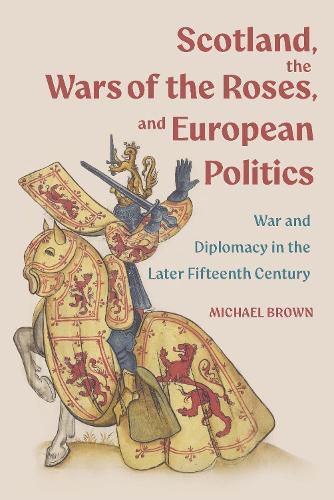Readings Newsletter
Become a Readings Member to make your shopping experience even easier.
Sign in or sign up for free!
You’re not far away from qualifying for FREE standard shipping within Australia
You’ve qualified for FREE standard shipping within Australia
The cart is loading…






Traces Scotland's involvement in the increasingly dynamic international relations of the fifteenth century.
In 1461 the eyes of much of Europe were trained on Scotland. King Henry VI of England had fled into exile there following his defeat by Edward of York at Towton. This attention may have been exceptional, but it demonstrates that despite its location, Scotland was an integral part of the European political world and, in particular, between the 1450s and 1490s, a key external player in the Wars of the Roses. However, although Scotland's role in these decades was never confined to Britain, scholarship has tended to downplay its continental connections. This book demonstrates the extent to which the Scots were active and engaged participants on a wider stage. Military, dynastic, and economic contacts meant that during the fifteenth century, Scotland was a recognised factor in the diplomacy of rulers from Italy to Scandinavia. It shows the importance of maintaining external relationships for the Scots, the fluctuating value of these relationships to other rulers, and how English political events were also bound up with wider patterns abroad.
$9.00 standard shipping within Australia
FREE standard shipping within Australia for orders over $100.00
Express & International shipping calculated at checkout
Stock availability can be subject to change without notice. We recommend calling the shop or contacting our online team to check availability of low stock items. Please see our Shopping Online page for more details.
Traces Scotland's involvement in the increasingly dynamic international relations of the fifteenth century.
In 1461 the eyes of much of Europe were trained on Scotland. King Henry VI of England had fled into exile there following his defeat by Edward of York at Towton. This attention may have been exceptional, but it demonstrates that despite its location, Scotland was an integral part of the European political world and, in particular, between the 1450s and 1490s, a key external player in the Wars of the Roses. However, although Scotland's role in these decades was never confined to Britain, scholarship has tended to downplay its continental connections. This book demonstrates the extent to which the Scots were active and engaged participants on a wider stage. Military, dynastic, and economic contacts meant that during the fifteenth century, Scotland was a recognised factor in the diplomacy of rulers from Italy to Scandinavia. It shows the importance of maintaining external relationships for the Scots, the fluctuating value of these relationships to other rulers, and how English political events were also bound up with wider patterns abroad.